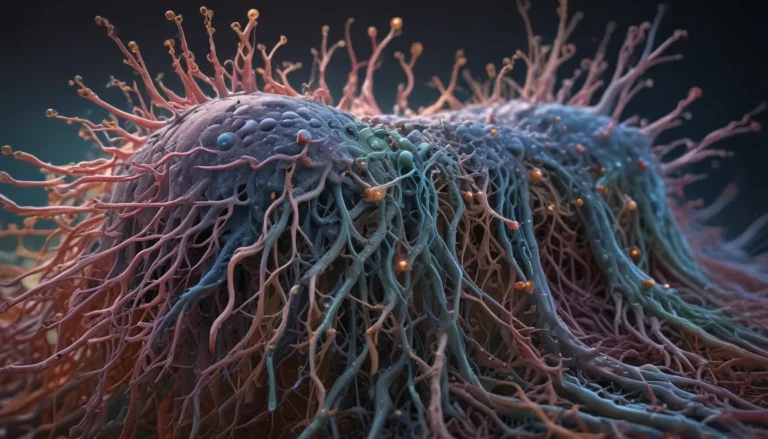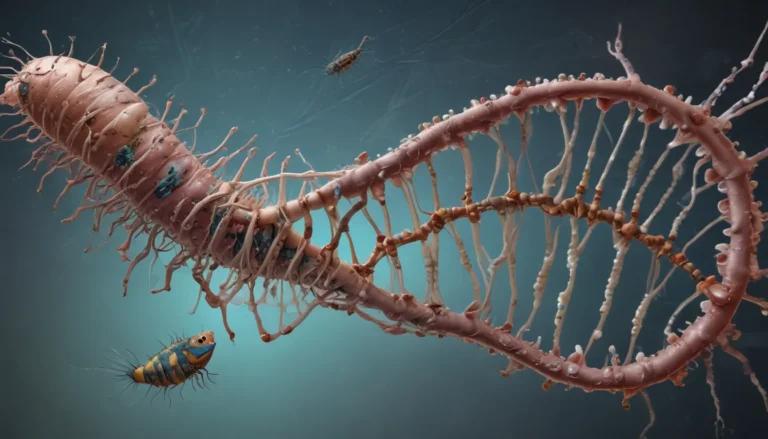A Note About Images: The images used in our articles are for illustration purposes only and may not exactly match the content. They are meant to engage readers, but the text should be relied upon for accurate information.
Welcome to a journey through the intricate and fascinating world of ecological balance. This fundamental concept in biology encompasses the delicate equilibrium that exists within ecosystems, showcasing the harmonious interplay between all living organisms and their environment. As we delve into 11 unbelievable facts about ecological balance, we will uncover the amazing complexity and interconnectedness of our natural world, emphasizing the critical importance of preserving this balance for future generations.
Nature’s Symphony: The Intricate Web of Life
Our planet is a vibrant tapestry of interconnected species, ranging from microscopic organisms to majestic mammals, all playing essential roles in maintaining ecological balance. Each component, no matter how small, contributes to the overall health and sustainability of ecosystems.
The Vital Role of Pollinators
Pollinators, such as bees, butterflies, and birds, are nature’s unsung heroes responsible for fertilizing plants and ensuring the reproduction of many plant species. Their work is indispensable for the production of fruits and seeds, highlighting the crucial link between pollinators and ecological balance.
Embracing Biodiversity for Resilience
Biodiversity, the variety of life forms present on Earth, is a cornerstone of ecological balance. It ensures the stability and resilience of ecosystems, enabling them to adapt to environmental changes and thrive in the face of adversity.
Champions of Nutrient Cycling: Decomposers
Decomposers, including bacteria and fungi, are key players in nutrient cycling, breaking down organic matter and transforming it into essential nutrients for other living organisms. Their vital role in recycling nutrients underscores the interconnectedness of all life forms.
Nurturing the Carbon Cycle for Balance
The carbon cycle, a fundamental process in maintaining ecological balance, revolves around the exchange of carbon between the atmosphere, plants, and the environment. Through photosynthesis and decomposition, carbon is continuously recycled, highlighting the interconnected nature of ecosystems.
Wetlands: Nature’s Multi-Purpose Marvels
Wetlands, such as marshes and swamps, offer a plethora of ecological benefits, serving as natural water filters, flood buffers, and vital habitats for a diverse range of plant and animal species. Their conservation is essential for preserving ecological balance.
Keystone Species: Guardians of Harmony
Keystone species, with their outsized impact on ecosystems, play a critical role in maintaining ecological balance. The loss of a keystone species can have cascading effects, underscoring the delicate balance within ecosystems.
Beware of Invasive Species: Disruptors of Balance
Invasive species, introduced through human activities, pose a significant threat to native flora and fauna by outcompeting native species, disrupting food chains, and destabilizing ecosystems. Their presence highlights the importance of preserving ecological balance.
Embracing Natural Disturbances for Renewal
Natural disturbances, such as wildfires and floods, may seem destructive, but they are vital for maintaining ecological balance. These events rejuvenate ecosystems, promote habitat diversity, and support natural regeneration, showcasing nature’s resilience.
Human Impact on Ecological Balance: A Call to Action
Human activities, including deforestation, pollution, and overfishing, have caused widespread disruptions to ecological balance on a global scale. Understanding these impacts is crucial for implementing sustainable practices and conserving our precious ecosystems.
Restoring Hope: The Power of Conservation
Despite the challenges posed by human activities, efforts are underway worldwide to restore degraded ecosystems, protect endangered species, and promote sustainable practices. These initiatives offer hope for preserving and restoring ecological balance for future generations.
As we reflect on these 11 unbelievable facts about ecological balance, it becomes clear that our actions profoundly impact the delicate equilibrium of our natural world. Recognizing the significance of ecological balance and taking proactive steps to protect it is not only essential for the survival of numerous species but also crucial for our own well-being. Let us embrace our role as stewards of the environment and work together to preserve the intricate balance of nature.
Conclusion: Nurturing a Sustainable Future
Understanding and maintaining ecological balance is paramount for the sustainability of our planet. These key insights into the interconnectedness of ecosystems underscore the importance of preserving biodiversity, reducing pollution, and embracing sustainable practices. By safeguarding ecological balance, we can create a flourishing environment for present and future generations to thrive in harmony with nature.
FAQs: Exploring Ecological Balance
-
What is ecological balance?
Ecological balance refers to the state of equilibrium in an ecosystem, where all living organisms coexist and interact in harmony, maintaining biodiversity and minimizing disruptions to natural processes. -
Why is ecological balance important?
Ecological balance is essential for the long-term survival of species and the overall health of our planet, providing benefits such as clean air and water, nutrient cycling, pollination, and natural pest control. -
How does climate change affect ecological balance?
Climate change disrupts ecological balance by altering temperature and precipitation patterns, causing habitat loss, and affecting species’ migration patterns, leading to shifts in species distribution and increased vulnerability to disease and extinction. -
What are keystone species?
Keystone species are species that have a disproportionate impact on their ecosystem, influencing the structure and diversity of their habitat and playing a crucial role in maintaining ecological balance. -
How can we contribute to ecological balance?
Individuals can contribute to ecological balance by adopting sustainable practices like reducing waste, conserving energy, supporting conservation efforts, practicing responsible consumption, and advocating for environmental protection policies.
Ecological balance is a captivating field of study that offers a deeper understanding of the intricate relationships that sustain life on our planet. As we continue to explore the wonders of nature and our interconnectedness with all living beings, let us cherish and protect the delicate balance that nurtures our world. Join us on this journey of discovery and conservation as we strive to uphold the beauty and resilience of ecological balance for generations to come.





